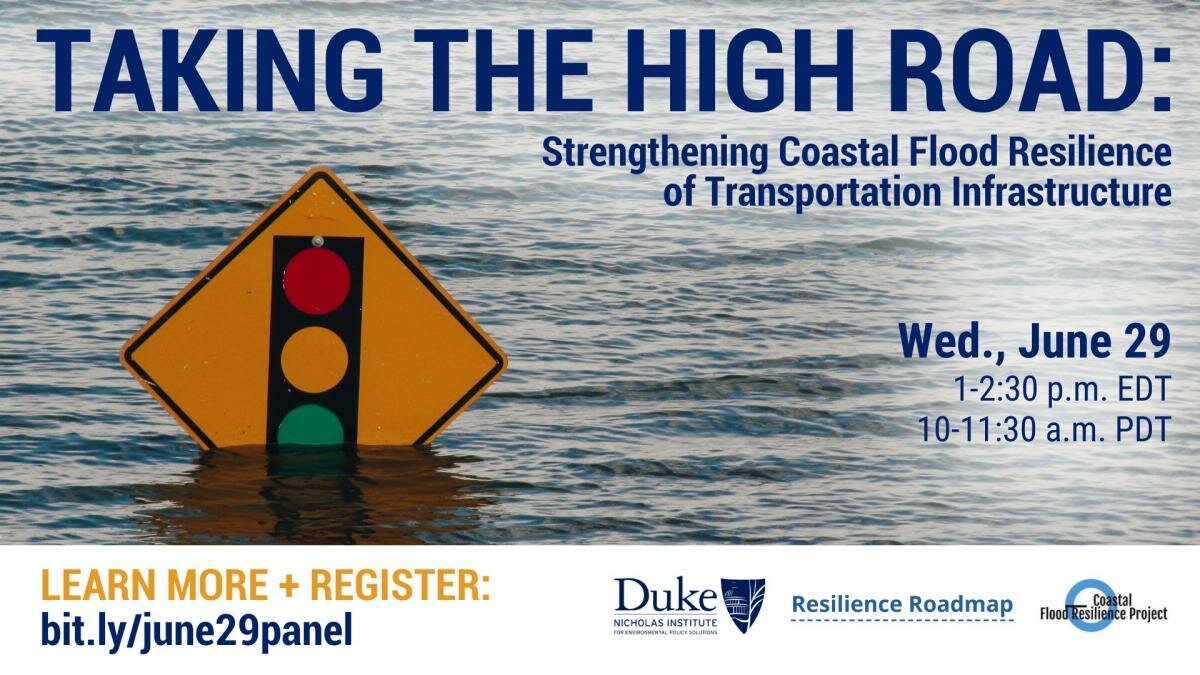Jeffrey Peterson (moderator), co-facilitator of the Coastal Flood Resilience Project
- Jeffrey Peterson is a co-facilitator of the Coastal Flood Resilience Project, a network of nonprofit organizations working to strengthen policy and programs to prepare for more severe storms and risings seas. His book A New Coast: Strategies for Responding to Devastating Storms and Rising Seas, was published in 2019 by Island Press. Before retiring from the Environmental Protection Agency in 2017, he was Senior Advisor in the EPA Office of Water responsible for climate change policy. In that capacity, he co-chaired the EPA Sea Level Rise Workgroup and was a member of the Federal Interagency Sea Level Rise Workgroup. He also worked for almost four years at the White House Council on Environmental Quality (CEQ), where he co-chaired the Interagency Water Resources and Climate Change Workgroup and authored the first national plan addressing water resources management and climate change.

Heather Holsinger, Office of the Secretary of Transportation at U.S. Department of Transportation
- Heather Holsinger is a Senior Climate Policy Specialist in the Office of Policy, within the Office of the Secretary of the U.S. Department of Transportation. Her work at the Department involves policy development and analysis in the areas of transportation system resilience, decarbonization, and sustainability. Prior to joining the Office of the Secretary, Heather served as an Environmental Protection Specialist on the Sustainable Transportation and Resilience team at the Federal Highway Administration, a Senior Policy Fellow and Program Manager for Adaptation at the Pew Center on Global Climate Change, a Senior Analyst with the Natural Resources and Environment team at the U.S. Government Accountability Office (GAO), and as an economic and environmental management consultant. She holds Masters Degrees from Duke University in resource economics (MEM) and public policy (MPP) and a BA from the University of Virginia with majors in Economics and Environmental Science.

Jeremy Ketchum, California Department of Transportation
- Jeremy Ketchum is an Assistant Division Chief for the Division of Environmental Analysis at the California Department of Transportation and also serves in an ex-officio Commissioner role as State Transportation Agency representative on the California Coastal Commission. Mr. Ketchum provides expertise and oversight for a team that develops and maintains environmental standards, policies, procedures, and practices implemented by the California Department of Transportation's 12 District Environmental Branches.

Kym Meyer, Senior Attorney at the Southern Environmental Law Center; Leader of SELC's Government Accountability initiative
- Kym litigates on a wide range of cases in both federal and state court. Kym is the lead attorney challenging President Trump's rollback of the National Environmental Policy Act. She recently argued before the North Carolina Supreme Court for the North Carolina NAACP in a groundbreaking case that challenges whether a racially gerrymandered legislature can amend the NC constitution. Kym has been involved in many cases involving climate change, including reaching a ground-breaking settlement with the North Carolina DOT which resulted in unprecedented environmental protections, and a number of new statewide climate change policies. Kym got her law degree at Georgetown. She lives in Chapel Hill with her husband State Representative Graig Meyer and their Brady Bunch of children.
Read-Ahead Primer:
![]() Taking the High Road: Strengthening Coastal Flood Resilience of Transportation Infrastructure Read-Ahead Primer
Taking the High Road: Strengthening Coastal Flood Resilience of Transportation Infrastructure Read-Ahead Primer
Contact:
- Rachel Karasik (E-mail: )
Retrieved from https://nicholasinstitute.duke.edu/events/taking-high-road-strengthening-coastal-flood-resilience-transportation-infrastructure



